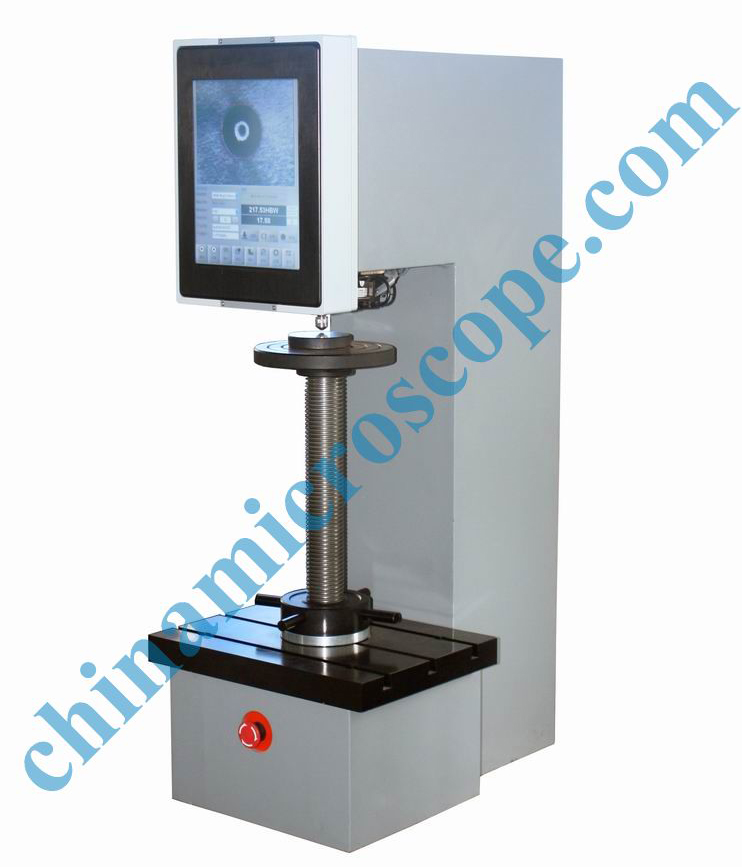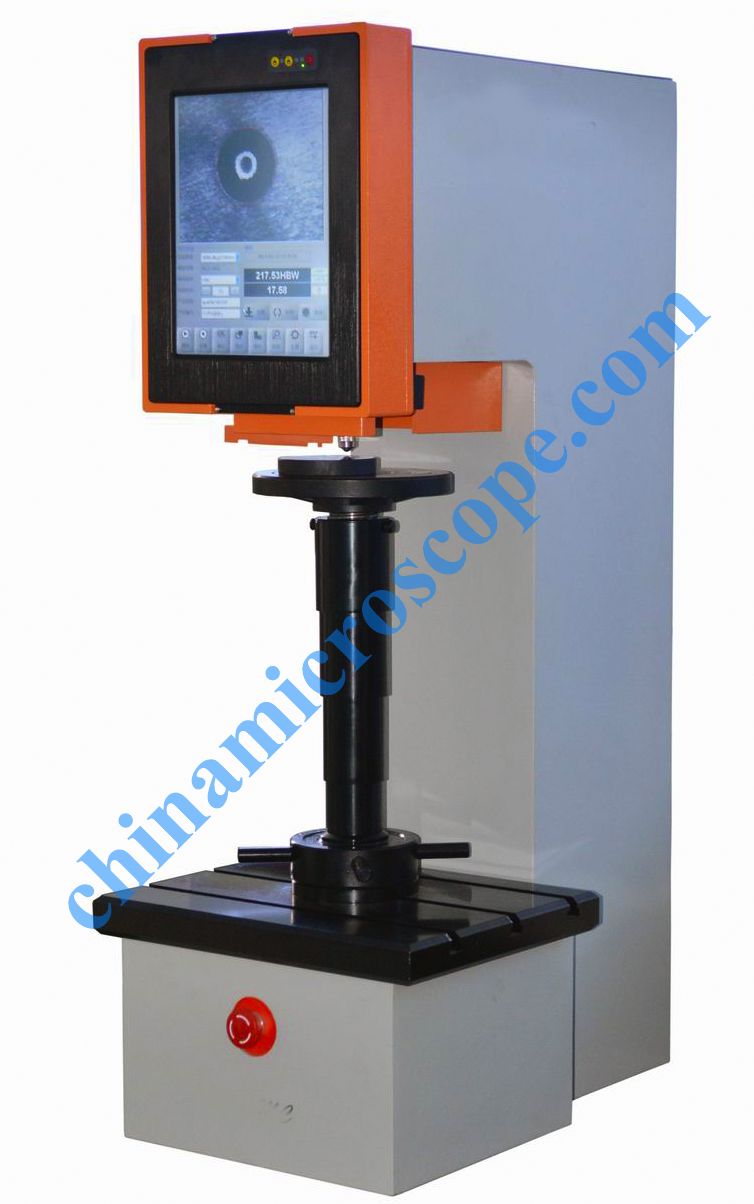

BTCZ3000 Brinell hardometer
Description:
1. Hardness is one of the important indices of material mechanical performance. And hardness test is the important means to determine metal material or the quality of product parts. Because of the corresponding relation between metal hardness and other mechanical performance, therefore, most metal materials can be measured the hardness to approximately calculate the other mechanical performance, such as strength, fatigue, creep and wear. Brinell hardness test can satisfy the determination of all the metal material hardness by using different test forces or changing different ball indenters.
2. This hardness tester adopts the combination of panel computer and hardness tester. All the required parameters can be selected on the panel computer. It’s clearly displayed and the operation on touch screen makes it convenient and quick. In the video measurement, through the CCD interface it directly displays the dynamic indentation image, locks the image and automatically measure the Brinell hardness. It has high measurement accuracy and stable performance. It avoids the artificial operation error and can choose the conversion value among the hardness scales, save the results of each measurement and generate the image report. The load of test forces is completed by motor servo system and precision mechanical drive. It realizes the automation of hardness test from automatic turret to automatic measurement. It displays dynamic test force changes on the screen and makes the operation process clear. The hardness tester with novel style and complete functions has the international advanced level.
3. The hardness tester has two kinds of Brinell hardness test methods:
HBW—Video measuring indentation average diameter to get the hardness value;
HBT—Through the grating measurement of indentation depth to get the hardness value.
Main Technical Parameters
1 Test force parameters Test force has 10 classes, respectively:
|
612.9N(62.5kg) |
4903N(500kg) |
|
980.7N(100kg) |
7355N(750kg) |
|
1226N(125kg) |
9807N(1000kg) |
|
1839N(187.5kg) |
14710N(1500kg) |
|
2452N(250kg) |
29420N(3000kg) |
Test force control: Closed-loop system
Test force carried: Automatic (loading/dwell/unloading)
Loading time: 2~8 seconds
Dwell time: 1~99 seconds
Test scale: 13 kinds
2 Indenter specifications:
φ2.5 mmball indenter; φ5 mmball indenter; φ10 mmball indenter
3 Hardness test range: 8~650 HBW
4 Choose the conversion value of various hardness scale
5 Objective and the indenter shifting: Automatic
6 CCD magnification: 20 times
7 Language selection: Chinese and English
8 Appearance parameters:
Overall dimensions (H×D×W): (1100×600×405) mm
Maximum height of specimen allowed:350 mm
Distance between the point of the indenter and the exterior panel:150 mm
Weight:275 kg
Power and voltage: AC 220V/110V±5%, 50~60Hz
9 The selection of test force should make the indentation diameter in 0.25D < d <0.6D range: When d = 0.37D, the hardness value is the most accurate. (d—indentation diameter, D—ball diameter)
10 Repetition and tolerance of displayed value for the hardness tester:
|
Standard hardness test block |
Tolerance of displayed value% |
Repetition of displayed value% |
|
≤125 |
±3 |
3 |
|
125<HBW≤225 |
±2.5 |
2.5 |
|
>225 |
±2 |
2 |
Accessories (The Packing List)
|
1 |
φ2.5mmball indenter |
1 |
|
2 |
φ5mmball indenter |
1 |
|
3 |
φ10mmball indenter |
1 |
|
4 |
Small plane testing table |
1 |
|
5 |
Big plane testing table |
1 |
|
6 |
V-shaped testing table |
1 |
|
|
Standard hardness test block: |
|
|
7 |
(150~250)HBW/3000/10 |
1 |
|
8 |
(150~250)HBW/750/5 |
1 |
|
9 |
Spare fuse (2A) |
2 |
|
10 |
Power cord |
1 |
|
11 |
Dust-proof plastic bag |
1 |
|
12 |
Usage instruction manual |
1 |